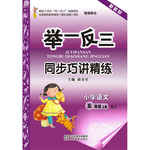题目内容
【题目】If you are given only 1 yuan, could you live in a city for one day? It seems this may be a little difficult. But students from Xi’an did it.
On April 10, more than 60 students from the Middle School Attached to Northwestern Polytechnic University took part in the One Yuan Metropolis Survival. The charitable organization for teenagers called Imperceptible Education held this activity. Students not only have to live, but they also have to deal with a lot of hard tasks. It has happened in eight cities and is going to four others, including Beijing, in June.
To make money, many students looked for part-time jobs and saw how hard life was. Zhang Queue, 14, asked more than 10 restaurants for a job and finally got one chance. “We were sad when they said no. But gradually (逐渐地), we got used to it,” he said. After being a waiter for an hour, he got 25 yuan.
Some made use of their talents by singing and dancing in parks or shopping malls. Many people who walked by took notice and helped them. Zhao Jincheng, 14, drew pictures and made paper crafts(手工). “This showed it’s important to learn a special skill,” he said.
Living was hard, but finishing the tasks wasn’t any easier. They went to different places to finish tasks in a short time. The most amazing one was when they had to exchange things worth thousands yuan with only a piece of paper in half an hour. “We learned how to persuade others. From a balloon to a cake to a bottle of yogurt (酸乳) … after almost 20 tries, we got an expensive necklace,” he said. They will give all of the money they made to poor schools in Tibet.
【1】According to Paragraph 2, which of the following is correct?
a. adults can join this activity
b. students are given a little money
c. students have to do hard tasks
d. twelve cities have joined this activity
A. a, b B. b, c
C. c, d D. a, d
【2】To make money, students tried many things EXCEPT ____________.
A. going to Beijing to do their tasks
B. working part-time jobs
C. giving talent shows
D. drawing and making paper crafts
【3】During this activity, _____________.
A. Zhang Queue gave up when he was refused
B. students learned that life is hard
C. Zhao Jincheng made money by singing
D. students learned how to make paper crafts
【4】What does the underlined word “persuade” in the last paragraph mean?
A. argue with others B. show sth. to others
C. sell something to others D. make sb. do sth.
【答案】
【1】B
【2】A
【3】B
【4】D
【解析】教育青少年的慈善组织举办了“一元都市”的生存活动。参与活动的学生要利用所给的一元钱挣到更多的钱,有的学生作兼职工作;有的学生在公园或商场唱歌跳舞;有的画画或做手工,目的是把挣到的钱捐给西藏贫困的学校。通过这项活动,学生们体会到生活的艰辛。
【1】细节理解题。根据短文中的句子On April 10, more than 60 students from the Middle School Attached to Northwestern Polytechnic University took part in the One Yuan Metropolis Survival. Students not only have to live, but they also have to deal with a lot of hard tasks.可知,只给学生们一元钱,同时他们还必须处理很多艰巨的任务。故答案为B。
【2】细节理解题。根据短文中的句子Zhang Queue, 14, asked more than 10 restaurants for a job and finally got one chance. Some made use of their talents by singing and dancing in parks or shopping malls. Zhao Jincheng, 14, drew pictures and made paper crafts(手工).可知,为了挣到钱,有的学生作兼职工作;有的学生在公园或商场唱歌跳舞;有的画画或做手工,不包含A。
【3】细节理解题。根据短文中的句子“To make money, many students looked for part-time jobs and saw how hard life was.”可知,通过这项活动,学生们体会到生活的艰辛。答案为B。
【4】词义猜测题。根据后面的句子“From a balloon to a cake to a bottle of yogurt(酸乳) … after almost 20 tries, we got an expensive necklace,”可知,参与活动的学生去劝说不同的人去做事情,答案为D。

 举一反三同步巧讲精练系列答案
举一反三同步巧讲精练系列答案 口算与应用题卡系列答案
口算与应用题卡系列答案 名师点睛字词句段篇系列答案
名师点睛字词句段篇系列答案